Filter by
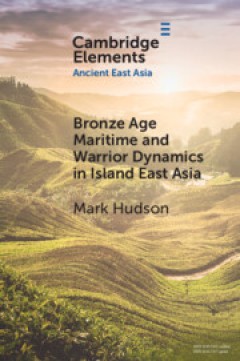
Bronze Age Maritime and Warrior Dynamics in Island East Asia
Recent interdisciplinary studies, combining scientific techniques such as ancient DNA analysis with humanistic re-evaluations of the transcultural value of bronze, have presented archaeologists with a fresh view of the Bronze Age in Europe. The new research emphasises long-distance connectivities and political decentralisation. 'Bronzisation' is discussed as a type of proto-globalisation. In th…
- Edition
- -
- ISBN/ISSN
- 9781108982955
- Collation
- 82 p ; ill
- Series Title
- -
- Call Number
- 959 BRO M
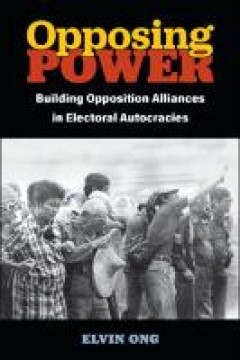
Opposing power : building opposition alliances in electoral autocracies
Opposing Power argues that perceptions of regime vulnerability and mutual dependency by opposition elites shape the building of opposition alliances. When electoral autocracies are consistently dominant, opposition parties eschew fully fledged alliances. At best, they allocate only one candidate to contest against the incumbent in each subnational electoral district to avoid splitting the oppos…
- Edition
- edision 2
- ISBN/ISSN
- 9780472133000
- Collation
- xiii. :313 p.
- Series Title
- -
- Call Number
- 322.4. OPP e
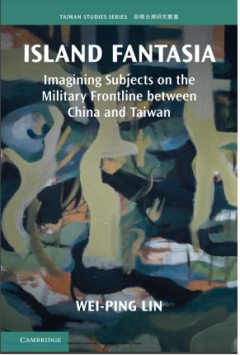
Island Fantasia
The Matsu archipelago between China and Taiwan, for long an isolated outpost off southeast China, was suddenly transformed into a military frontline in 1949 by the Cold War and the Communist-Nationalist conflict. The army occupied the islands, commencing more than 40 long years of military rule. With the lifting of martial law in 1992, the people were confronted with the question of how to move…
- Edition
- -
- ISBN/ISSN
- 9781009023481
- Collation
- xvii, 330p, ill
- Series Title
- -
- Call Number
- 951.249 WEI
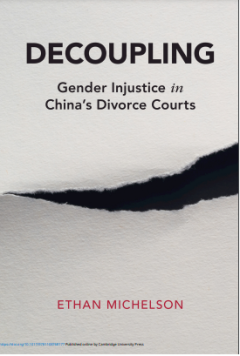
Decoupling: Gender Injustice in China's Divorce Courts
Michelson's analysis of almost 150,000 divorce trials reveals routine and egregious violations of China's own laws upholding the freedom of divorce, gender equality, and the protection of women's physical security. Using 'big data' computational techniques to scrutinize cases covering 2009–2016 from all 252 basic-level courts in two Chinese provinces, Henan and Zhejiang, Michelson reveals tha…
- Edition
- -
- ISBN/ISSN
- 9781108768177
- Collation
- xiii, 574p,: ill
- Series Title
- -
- Call Number
- 306.8930951 ETH
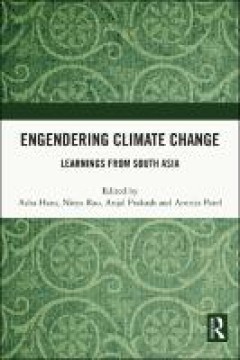
Engendering climate change : learnings from South Asia
"This book focuses on the gendered experiences of environmental change across different geographies and social contexts in South Asia and on diverse strategies of adapting to climate variability. The book analyzes how changes in rainfall patterns, floods, droughts, heatwaves, and landslides affect those who are directly dependent on the agrarian economy. It examines the socio-economic pressures…
- Edition
- -
- ISBN/ISSN
- 9781003142409
- Collation
- xx, 241p.
- Series Title
- -
- Call Number
- 363.738740654 HAN e
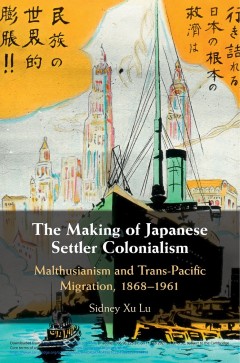
The making of Japanese settler colonialism : Malthusianism and trans-Pacific …
This innovative study demonstrates how Japanese empire-builders invented and appropriated the discourse of overpopulation to justify Japanese settler colonialism across the Pacific. Lu defines this overpopulation discourse as 'Malthusian expansionism'. This was a set of ideas that demanded additional land abroad to accommodate the supposed surplus people in domestic society on the one hand and …
- Edition
- -
- ISBN/ISSN
- 9781108687584
- Collation
- xv, 313p. : ill.
- Series Title
- -
- Call Number
- 304.8095209034 LU m
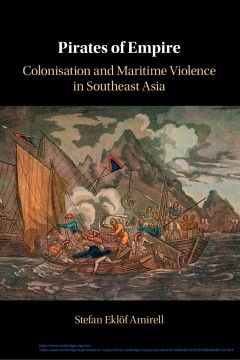
Pirates of empire : colonisation and maritime violence in Southeast Asia
The suppression of piracy and other forms of maritime violence was a keystone in the colonisation of Southeast Asia. Focusing on what was seen in the nineteenth century as the three most pirate-infested areas in the region - the Sulu Sea, the Strait of Malacca and Indochina - this comparative study in colonial history explores how piracy was defined, contested and used to resist or justify colo…
- Edition
- -
- ISBN/ISSN
- 9781108594516
- Collation
- ix, 266p. : ill.
- Series Title
- -
- Call Number
- 364.164 AMI p
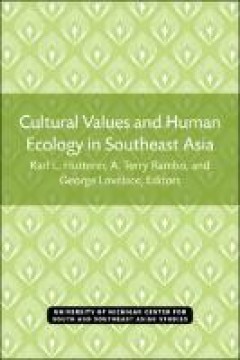
Cultural values and human ecology in Southeast Asia
Ecologists have long based their conceptual frameworks in the natural sciences. Recently, however, they have acknowledged that ecosystems cannot be understood without taking into account human interventions that may have taken place for thousands of years. And for their part, social scientists have recognized that human behavior must be understood in the environment in which it is acted out. Re…
- Edition
- -
- ISBN/ISSN
- 9780472902293
- Collation
- X, 417 p.
- Series Title
- Michigan Papers On South And Southeast Asia, 27
- Call Number
- 304.20959 CUL c
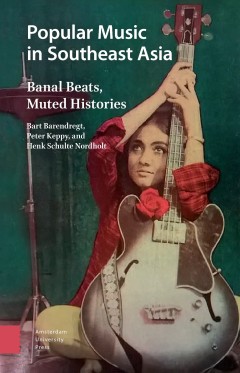
Popular music in Southeast Asia : banal beats, muted histories
From the 1920s on, popular music in Southeast Asia was a mass-audience phenomenon that drew new connections between indigenous musical styles and contemporary genres from elsewhere to create new, hybrid forms. This book presents a cultural history of modern Southeast Asia from the vantage point of popular music, considering not just singers and musicians but their fans as well, showing how the …
- Edition
- -
- ISBN/ISSN
- 9789462984035
- Collation
- 104p. : ill.
- Series Title
- -
- Call Number
- 781.630959 BAR p
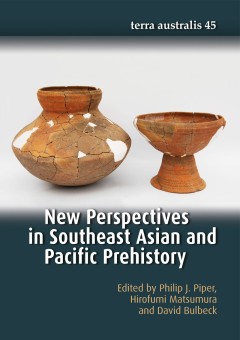
New perspectives in Southeast Asian and Pacific prehistory
‘This volume brings together a diversity of international scholars, unified in the theme of expanding scientific knowledge about humanity’s past in the Asia-Pacific region. The contents in total encompass a deep time range, concerning the origins and dispersals of anatomically modern humans, the lifestyles of Pleistocene and early Holocene Palaeolithic hunter-gatherers, the emergence of Neo…
- Edition
- -
- ISBN/ISSN
- 9781760460952
- Collation
- xx, 384p. : ill.
- Series Title
- Terra australis 45
- Call Number
- 959.01 NEW n
 Computer Science, Information & General Works
Computer Science, Information & General Works  Philosophy & Psychology
Philosophy & Psychology  Religion
Religion  Social Sciences
Social Sciences  Language
Language  Pure Science
Pure Science  Applied Sciences
Applied Sciences  Art & Recreation
Art & Recreation  Literature
Literature  History & Geography
History & Geography